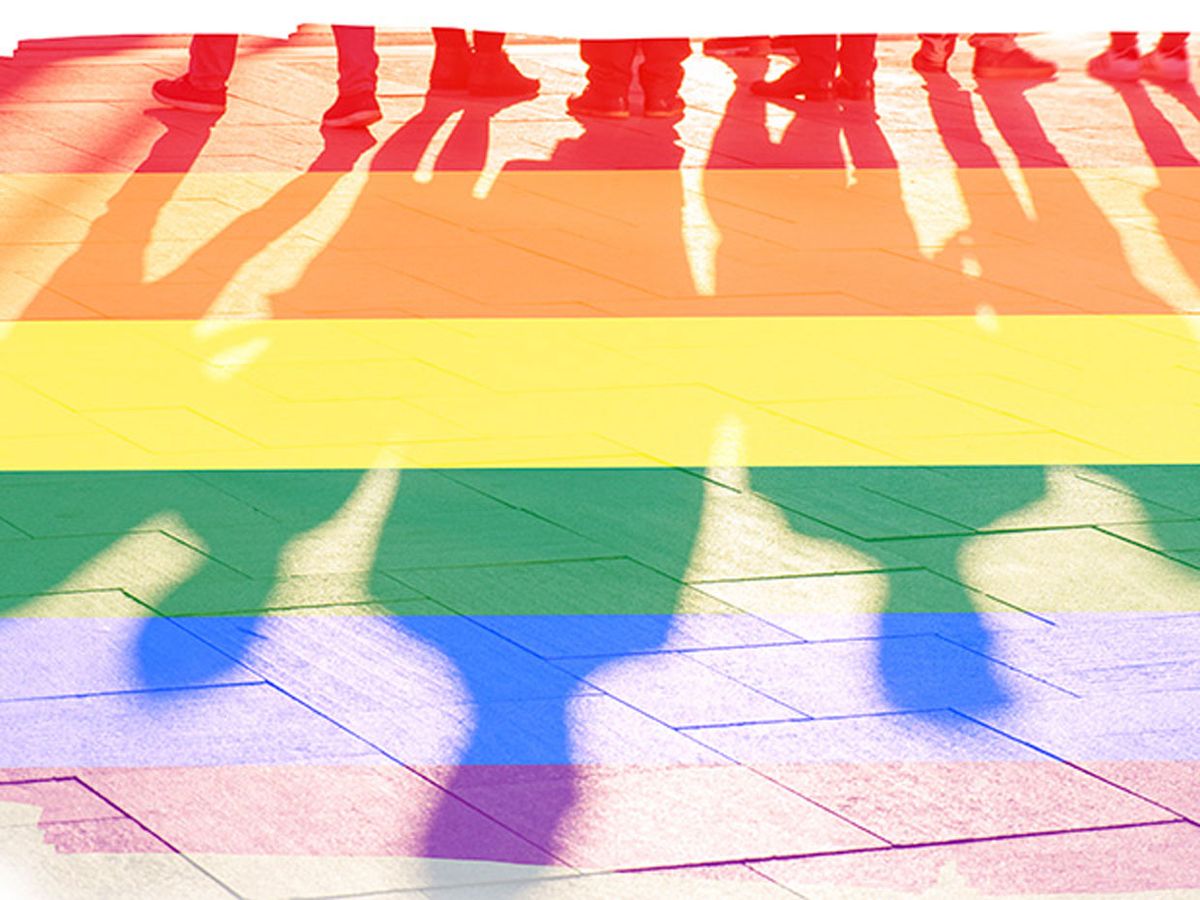THE INSTITUTEIt would be a dream to make the perfect invisibility cloak, one that works at all wavelengths, delivers ultralow loss performance, and is compact, flexible, portable, and (virtually) free. The recipe for that cloak is known. The physics of such cloaks lie not in metamaterials and electromagnetic cloaking, nor a clever application of epsilon near-zero materials, and not even artful exploitation of ultrawide bandgaps. The recipe is simple—like all scientists I refer to the technique perfected with much pain as “simple” to be lesbian, gay, bisexual, transgender, queer, or intersex (LGBTQI; sometimes expressed as GLBTQI). LGBT people are invisible because of the largely heteronormative nature of our society, especially within the science, technology, engineering, and math fields.
Countries are ruling that discrimination on the basis of sexual orientation is a fundamental violation of rights. India was the latest country to issue such a ruling. Countries also are legalizing same-sex marriage. In our lifetime we are seeing a change from homosexuality being a crime to being legal.
Even though more countries are changing their laws, homosexuality is still illegal in several and is not socially acceptable in others—which makes it scary for LGBT people who live there. The risks are real: death in extreme cases, although the loss of a job and social ostracism are more common.
THE STEM COMMUNITY
Within the scientific and engineering community, those who are LGBT are almost invisible, even though they make up about 10 percent of the population. The irony that light and invisibility go hand in glove is incredible. This hiding in plain sight and invisibility is being helped along by all of us within the science, technology, engineering, and math (STEM) community.
There are few LGBT scientists, educators, or researchers in the photonics and optics fields who have disclosed their sexual orientation. I can think of almost no one. Because there are so few LGBT role models, it is that much harder for young people with those sexual orientations who want to pursue a STEM career to see themselves as successful engineers and scientists. Traditionally conservative professions, like banking, law, and accounting, have made efforts to be inclusive of their LGBT employees and have created programs to attract young LGBT people into their professions, but we in STEM ignore their presence.
Within the scientific community, which is also largely conservative, coming out can mean facing censure or even outright prejudice. Making an inherent aspect of LGBT people’s very nature invisible becomes the “safe” thing to do.
MAKING ASSUMPTIONS
We are used to assuming everyone is straight, so that becomes the dominant narrative. During sessions about issues that affect underrepresented groups, for example, the topic of partners struggling with career issues assumes that couples are composed of male-female partners. The idea that same-sex couples might be facing similar problems doesn’t come up. The complications and heartache caused by their relationship not being legally recognized in many countries—and how that limits their choices, careers, and lives—is never discussed.
When the discussion moves to the impact that raising children has on one’s career, the assumption again is that straight women are the ones having children and facing problems. But LGBT couples who want to have children face other issues—such as in vitro fertilization, surrogacy, and adoption—things that not all straight couples have to think about. In many diversity events I’ve attended and articles I’ve read, there is scant mention of the issues that LGBT folks face. It’s no wonder that LGBT people feel alienated.
Take, for example, the British mathematician Alan Turing. He helped crack the German Enigma code and therefore shortened World War II by an estimated two years, but he was branded a criminal because he was gay. He was chemically castrated, and he committed suicide. The British government posthumously pardoned him, and Hollywood celebrated his work in The Imitation Game.
The pardon is welcome and so is the recognition of Turing’s genius and the wrong that was done to him. Yet I can’t help but think that, given a choice, Turing would have preferred to live to a grand old age with his husband, teaching and researching quantum cryptography during the week and visiting with his grandkids on the weekend. We, as a society, also would have benefited from the additional research he would have conducted.
We can choose to learn from Turing’s case and stop forcing our LGBT talent to hide under an invisibility cloak. An environment where everyone is not assumed to be straight would be a good start.
Senior Member Arti Agrawal is an associate professor at the University of Technology, Sydney. She is director of the university’s Women in Engineering and IT program, an associate editor of the IEEE Photonics Journal and associate vice president of diversity for the IEEE Photonics Society.
Arti Agrawal is an associate professor at the University of Technology, Sydney. The IEEE senior member is director of the university’s Women in Engineering and IT program, an associate editor of the IEEE Photonics Journal and associate vice president of diversity for the IEEE Photonics Society.



